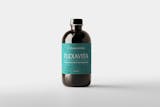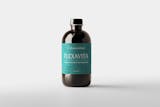The Ultimate Guide to Healing Anal Fissures Naturally: 10 Effective Methods
Introduction
Anal fissures can significantly impact one's daily life, causing discomfort and pain. While surgical options exist, non-surgical treatments offer promising avenues for permanent healing. In this comprehensive guide, we delve into ten effective methods to cure fissures without resorting to surgery.
Understanding Anal Fissures
Anal fissures refer to small tears or cracks in the skin lining the anus. Common symptoms include sharp pain during bowel movements and burning sensations afterward. Addressing the underlying causes of anal fissures is crucial to prevent recurrence.
Lifestyle Changes for Healing
- Frequent Fluid Intake: Hydration plays a vital role in preventing constipation, a common trigger for fissures. Adequate fluid intake ensures softer stools, reducing the risk of fissures.
- Caffeine Avoidance: While caffeine can act as a diuretic, leading to dehydration, its role in causing anal fissures is debated. However, moderation is key, and maintaining a balance in fluid intake is crucial.
- High Fiber Diet: Fiber-rich foods promote healthy bowel movements by adding bulk to stool and facilitating digestion. Incorporating soluble and insoluble fibers can prevent constipation and aid in fissure healing.
Home Remedies and Self-Care Practices
- Sitz Baths: Soaking in warm water helps relax sphincter muscles and alleviate pain associated with fissures. Regular sitz baths promote healing and provide relief after bowel movements.
- Avoidance of Straining: Techniques such as proper posture and controlled breathing can prevent straining during bowel movements, reducing the risk of aggravating fissures.
- Over-the-Counter (OTC) Laxatives: Laxatives and stool softeners can aid in bowel movement regulation, making it easier to pass stool without exacerbating fissures.
Now, let's explore medical treatments and interventions to further address anal fissures and promote healing.
The Ultimate Guide to Healing Anal Fissures Naturally: 10 Effective Methods
Medical Treatments and Interventions
Anal fissures, though painful, can often be managed effectively with medical treatments and interventions. Let's explore some of the most effective methods:
Topical Anesthetics
Topical anesthetics, such as lidocaine, play a crucial role in providing pain relief for individuals suffering from anal fissures. When applied to the affected area, lidocaine numbs the skin, reducing discomfort during bowel movements and promoting healing.
Topical Nitrates
Topical nitrates, including nitroglycerine, are known for their ability to relax muscles and improve blood flow. By applying nitroglycerine to the anal area, patients can experience relief from spasms and discomfort associated with fissures, ultimately aiding in the healing process.
Topical Calcium Channel Blockers
Topical calcium channel blockers, such as diltiazem and nifedipine, offer another avenue for treating anal fissures. These medications work by relaxing the anal sphincter muscles, reducing pressure on the fissure, and promoting healing. They can be applied directly to the affected area or taken orally, depending on the severity of the condition.
Botulinum Toxin Injection
For individuals with chronic anal fissures, botulinum toxin injection (Botox) may be recommended. This treatment involves injecting Botox into the internal anal sphincter, causing temporary paralysis and allowing the fissure to heal. While effective, it's important to note that Botox injections are considered off-label for fissure treatment and should be discussed thoroughly with a healthcare professional.
Now that we've explored medical treatments and interventions, let's move on to understanding how to monitor progress and when to seek medical help.
The Ultimate Guide to Healing Anal Fissures Naturally: 10 Effective Methods
Monitoring Progress and Seeking Medical Help
As you embark on your journey to heal anal fissures naturally, it's essential to monitor your progress and know when to seek medical assistance. Here's what you need to know:
Signs of Progress
- Reduced Pain: Decreased pain during bowel movements indicates that the treatments are working, and the fissures are healing.
- Improved Bowel Movements: Easier passage of stool without discomfort or straining is a positive sign of healing.
- Decreased Bleeding: If bleeding associated with anal fissures diminishes or stops, it signifies progress in the healing process.
When to Consult a Doctor
While natural remedies and lifestyle changes can be effective, certain symptoms warrant immediate medical attention:
- Persistent Pain: If pain persists or worsens despite treatment, consult a healthcare professional.
- Excessive Bleeding: Heavy bleeding or bleeding that doesn't improve should be evaluated by a doctor.
- No Improvement: If there's no improvement in symptoms after several weeks of treatment, seek medical advice.
- Severe Symptoms: Severe pain, fever, or signs of infection require prompt medical attention.
FAQs
Q: Can anal fissures heal on their own without treatment?
A: While some anal fissures may heal on their own with proper self-care, chronic or severe fissures often require medical intervention for healing.
Q: How long does it take for anal fissures to heal with natural remedies?
A: The healing time varies depending on the severity of the fissure and the effectiveness of the chosen treatments. On average, it may take several weeks to months to achieve complete healing.
Q: Are there any complications associated with anal fissures?
A: In some cases, untreated or recurrent anal fissures can lead to complications such as chronic pain, infection, or the formation of fistulas.
Q: Can anal fissures recur after successful treatment?
A: Yes, anal fissures can recur, especially if underlying causes such as constipation or diarrhea are not addressed. However, with proper management, recurrence rates can be minimized.
Key Takeaways
- Monitor Progress: Keep track of improvements in pain, bleeding, and bowel movements.
- Seek Medical Help: Consult a doctor if symptoms persist or worsen, or if there's no improvement after several weeks of treatment.
Now that we understand how to monitor progress and when to seek medical help, let's delve into the concluding section, summarizing the importance of non-surgical methods for healing anal fissures.
The Ultimate Guide to Healing Anal Fissures Naturally: 10 Effective Methods
Home Remedies and Self-Care Practices
While medical treatments play a crucial role in healing anal fissures, incorporating home remedies and self-care practices can further enhance the healing process. Let's explore some effective methods:
Sitz Baths
Sitz baths are a simple yet effective way to relieve pain and promote healing of anal fissures. By soaking the affected area in warm water for 10 to 20 minutes several times a day, individuals can experience soothing relief from discomfort. Sitz baths help relax the sphincter muscles, improve blood circulation, and reduce inflammation, all of which contribute to faster healing.
Avoidance of Straining
Straining during bowel movements can exacerbate anal fissures and delay healing. To avoid straining, it's essential to adopt proper bowel habits and techniques, such as:
- Maintaining Good Posture: Sitting on the toilet with your feet elevated on a stool can help align the rectum for easier passage of stool.
- Breathing Exercises: Practicing deep breathing exercises while on the toilet can help relax the pelvic floor muscles and facilitate bowel movements.
- Using a Squatty Potty: Using a stool or a Squatty Potty can mimic the natural squatting position, making it easier to pass stool without straining.
Over-the-Counter (OTC) Laxatives
For individuals experiencing constipation or difficulty passing stool, over-the-counter laxatives can provide relief. Laxatives containing bulk-forming agents, such as psyllium or methylcellulose, can soften stool and make it easier to pass. Stool softeners, such as docusate sodium, can also be helpful in easing bowel movements without straining.
Incorporating these home remedies and self-care practices into your daily routine can complement medical treatments and expedite the healing process. Now, let's move on to the concluding section, where we'll recap the importance of non-surgical methods for healing anal fissures.
The Ultimate Guide to Healing Anal Fissures Naturally: 10 Effective Methods
Conclusion
In conclusion, anal fissures can be a painful and debilitating condition, impacting daily life and causing discomfort during bowel movements. However, with the right approach, it's possible to achieve relief and heal anal fissures naturally data-mce-fragment="1"> without resorting to surgery. Throughout this guide, we've explored various methods to address anal fissures effectively, from lifestyle changes to medical treatments. Let's recap the key points covered in each section:
-
Introduction:
- Provided an overview of anal fissures and emphasized the importance of non-surgical treatments for permanent healing.
-
- Defined anal fissures, discussed symptoms, and highlighted the significance of addressing underlying causes to prevent recurrence.
-
Lifestyle Changes for Healing:
- Explored the role of frequent fluid intake, caffeine avoidance, and a high fiber diet in preventing constipation and promoting healing.
-
Home Remedies and Self-Care Practices:
-
Medical Treatments and Interventions:
- Explored various medical treatments, including topical anesthetics, topical nitrates, topical calcium channel blockers, and botulinum toxin injection.
-
Monitoring Progress and Seeking Medical Help:
- Highlighted signs of progress, symptoms warranting medical attention, and answered common FAQs about anal fissures and their treatments.
-
Conclusion:
- Emphasized the importance of non-surgical methods for curing anal fissures, encouraged trying these methods under the guidance of healthcare professionals, and reiterated the goal of achieving permanent relief without surgery.
By implementing these methods and seeking appropriate medical advice when needed, individuals can effectively manage anal fissures and improve their quality of life. Remember, consistency and patience are key on the journey to healing.
Now that you're equipped with valuable insights and strategies, take proactive steps towards healing anal fissures naturally and reclaiming your well-being.





